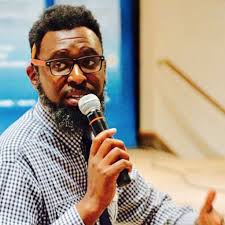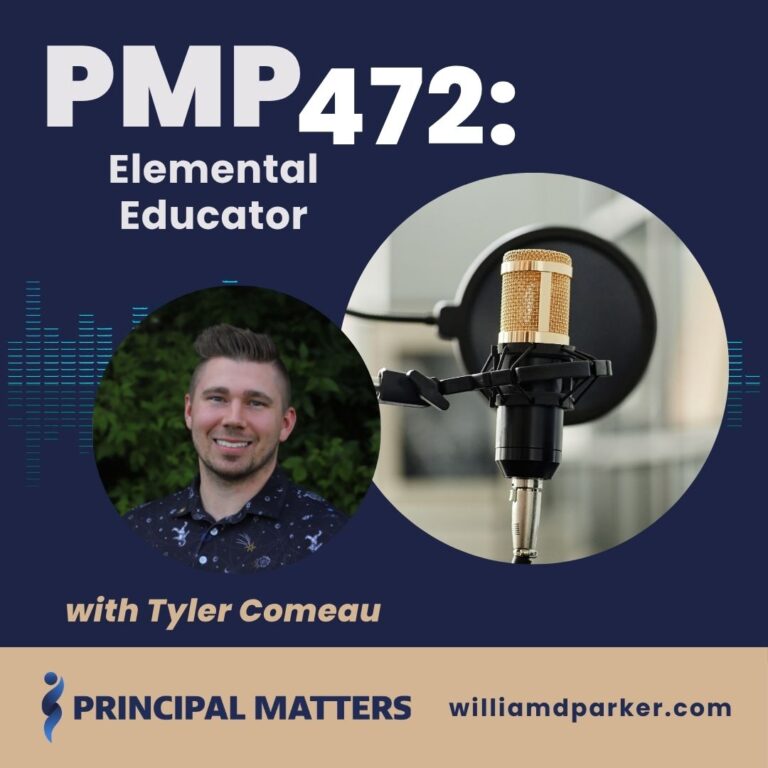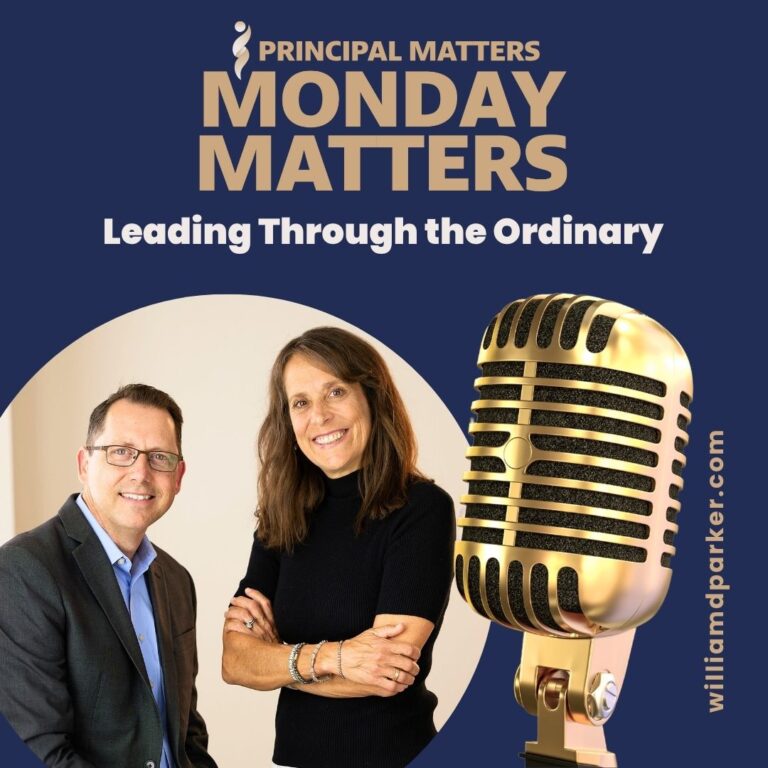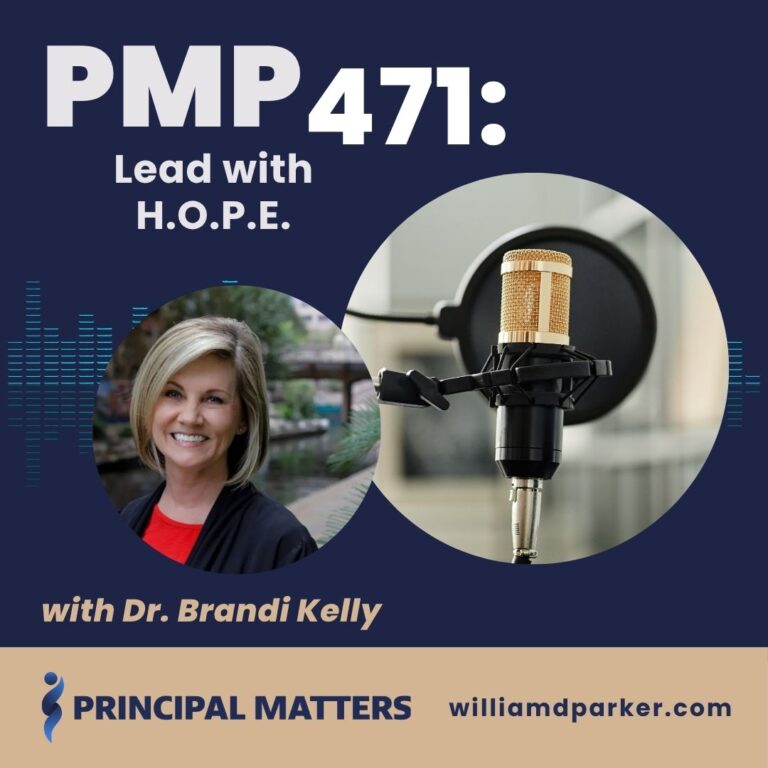Podcast: Play in new window | Download
In October 2018, William Stubbs, an instructional leadership director at Oklahoma City Public Schools at the time, entered and won the Teach for America’s Shark Tank OKC as a contestant in the city’s Shark Tank competition.

He was awarded $10,000 to implement stronger partnerships and mentoring opportunties for the city’s young men of color with educators and community businesses. His idea was borne from a conviction that black males, in particular, need more access to men of color as role models in education and business.
A January 29, 2019 post on the website Theundeafeted.com by Chandra Thomas Whitfield explains that only two-percent of teachers are black men. Although student populations are much more diverse, minority students do not always see themselves reflected in their teachers or school leaders.
Recently, I had the privilege to interview William Stubbs, and he shared several takeaways for principals to keep in mind as they consider how to create stronger environments of diversity and equity.
William’s Bio

William Stubbs is the Middle School Managing Director at UpLift Education in Dallas, Texas. He is a former Instructional Leadership Director for the Oklahoma City Public School District. Before his Oklahoma tenure, he served as the K-12 Principal at Kennedy Charter Public School in Charlotte, NC. Before joining Kennedy Charter Public School, William was the Dean of Students and Upper School Literature Teacher at Kestrel Heights School in Durham, NC. He has also been a Principal Intern at Reedy Creek Middle School – Wake County Public Schools in Cary, NC. William holds an M.S.A. from the University of North Carolina, Chapel Hill, and a B.A. in English from Shaw University.
The Life of an Educator
William Stubbs has always been passtionate about learning and growing, and he wanted to be an educator from a very young age. As an undergraduate at Shaw Univeristy, he was a part of the Breakthrough Collaborative that allowed college students to teach and mentor middle school students. Later he was a Teach for America educator and taught high school English. Much of his experience has been working between district public schools and charters. He is also a co-moderator for the Twitter chat Black Males Educators or #BMEsTalk, each Tuesday night at 8PM Central Standard Time, where educators from across the U.S. share ideas, research, and feedback on ways to encourage positive outcomes for black male educators.
Important Trends in Education
In this episode, William shares about how diversity matters, especially in settings where demographics are shifting.
An important question for school leaders to consider is: how can you closely allign your student population and your staff represented there? Many black male educators did not have black male educators in early-childhood. More black male educators are seen in high schools but fewer in college settings. Teachers of color can often connect with the learning of students of color.
One example addressing the need is the Call Me MISTER (Mentors Instructing Students Toward Effective Role Models) Initiative , which is currently available at 13 universities throughout the U.S.
Suggestions for School Leaders
District and school leaders must be clear on what diversity means and why it’s important. And conversations on change need to begin with leaders. This includes developing professional learning around critical topics, like implicit bias, and strategizing around hiring practices and how leaders view talent.
William also explains how important it is to understand the need with both head and heart. Then leaders can began to implement policies and practices that reflect that understanding.
The implications of bias, for instance, are sometimes seen in the ways leaders view candidates with public versus private university degrees, the strategies they use for recruiting, and even the use of substitute pools. In addition, schools must develop leadership pipelines for building conditions for growth, and recognizing talent so that more black male educators are encouraged to stay in the profession.
Practices Affecting Student Popluations:
It is also important to review codes of conduct and analyze how zero tolerance practices may be affecting some populations more than others. This also means adopting restorative and guidance practices in student discipline.
In addition, school leaders need to consider how students are identified in special education or gifted and talented programs. For instance, do we have a clear system for identifying gifted and talented students from among all groups while not over-diagnosing students of color into special education classes?
Let’s Wrap This Up
At the end of our conversation, William shared six reasons black males typically leave the profession of education. These include:
- Feeling alone or isolated
- Being counted on for disciplinary or coaching without being viewed as instructional leader
- Difficulties in navigating credentialing requirements
- Low pay from state to state making it difficult for educators to make a living income
- Wanting a supportive school leader
- Wanting to be in a school or district that encourages growth
Now It’s Your Turn
What is one step you can take in rethinking practices in hiring, recruiting, and developing pipelines for leadership in your school or district? How can you make sure no one on your team feels isolated? How can you remove barriers and develop teachers as instructional leaders? It is important to ask how all students feel represented by their teachers and school leaders. And as you support teachers and students, consider the six areas above, especially for those on your team who may represent minority populations.
Listen to this podcast episode for more details, and follow William Stubbs on Twitter at @WmStubbs. Join the Tuesday night chats via Twitter at #BMEsTalk.
Sign-Up For Free Updates and Ebook
You can automatically receive Principal Matter posts and a free Ebook, 8 Hats: Essential Roles for School Leaders. Let’s keep learning together!




